Ruth and I are working on a little theory: maybe all Ruths are ardent animal lovers. (Are you a Ruth and a detractor? Let us know so we can account for outliers.) Maybe one day we'll meet in person and it will be an instant Disney movie – animals EVERYWHERE. #TeamRuth
Here's the next best thing: talking to Ruth about the heart-opening work of caring for animals, how her two adopted cats helped her get some stability in her life, the feral nature of love and heartbreak, and her best advice on getting your poetry to stand out in the slush pile.
So now that you're biting at the bit to hear her do the talking, some background: Ruth Baumann is the author of three chapbooks: I’ll Love You Forever & Other Temporary Valentines (Salt Hill, 2015), wildcold (Slash Pines Press, 2016), and Retribution Binary (Black Lawrence Press, forthcoming 2017). Her poems have been published in Colorado Review, Sonora Review, Sycamore Review, The Journal, Third Coast, and others. She received an AWP Intro Journals Project Award in 2014. She holds an MFA from the University of Memphis and is pursuing her PhD at Florida State University.
Additionally, she is former managing editor of The Pinch literary journal, and she currently edits Nightjar Review with Tara Mae Mulroy. She lives in Tallahassee, Florida, with her two cats Julia and Autumn (and the occasional foster feline).
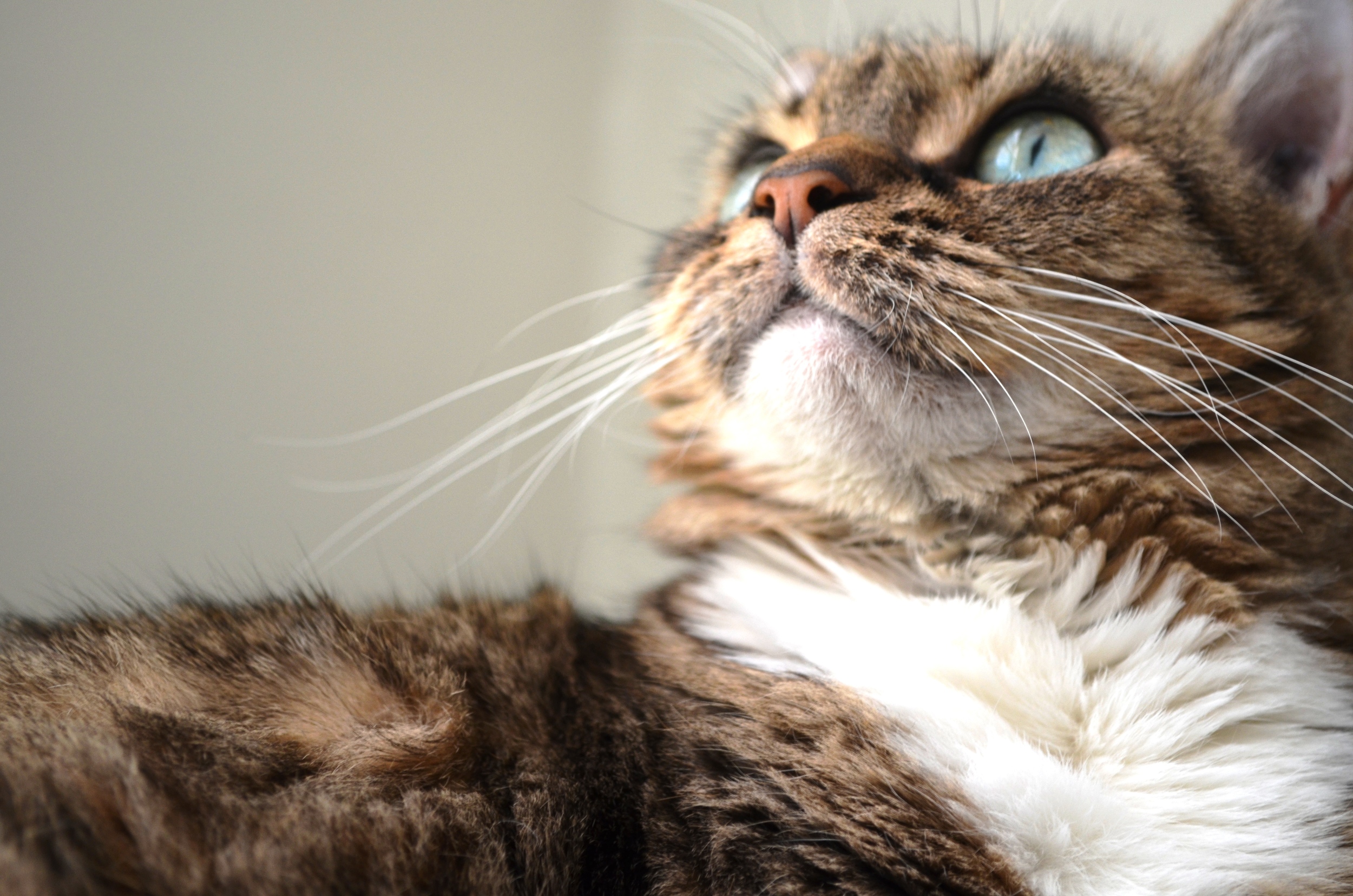
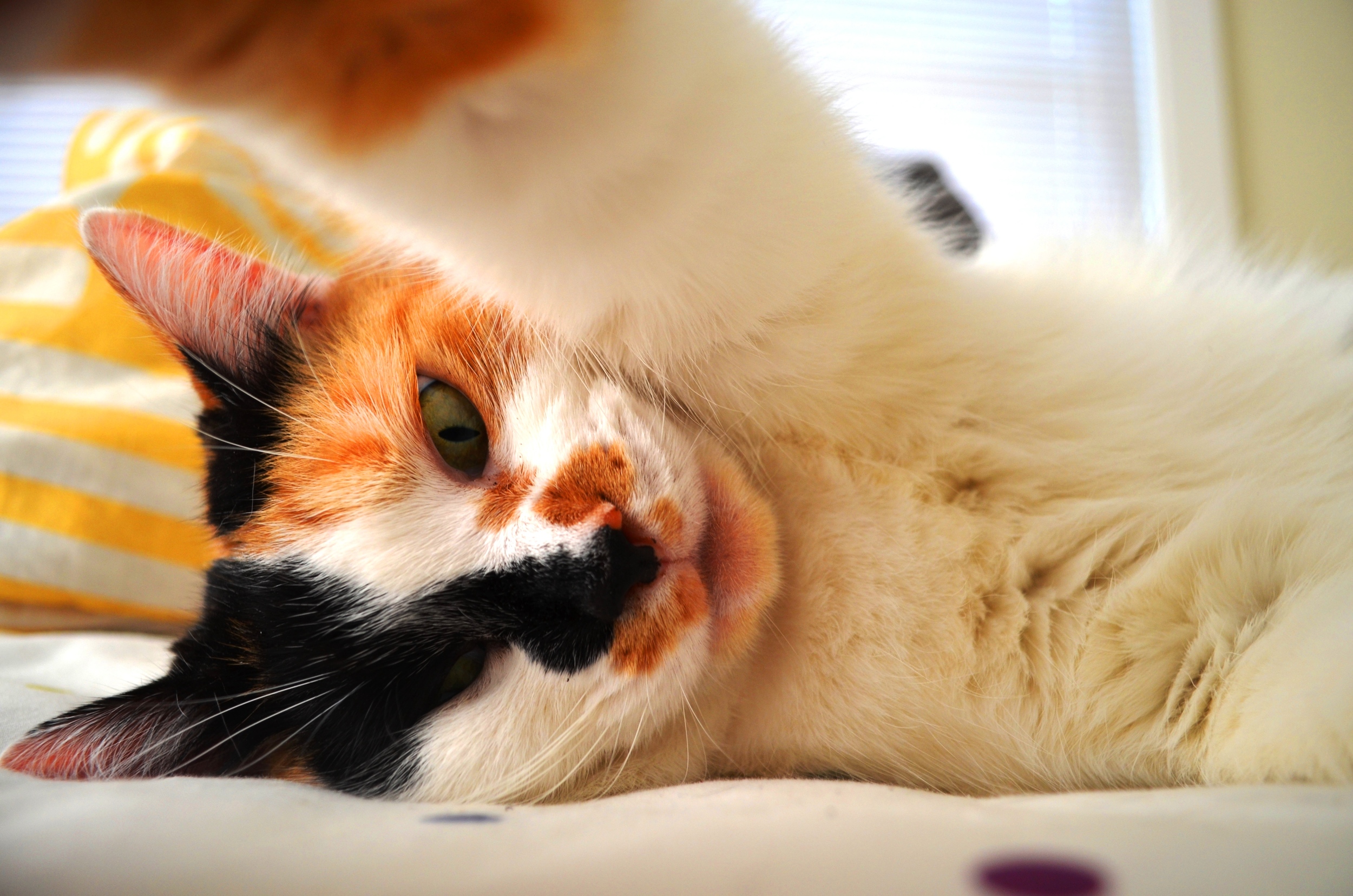
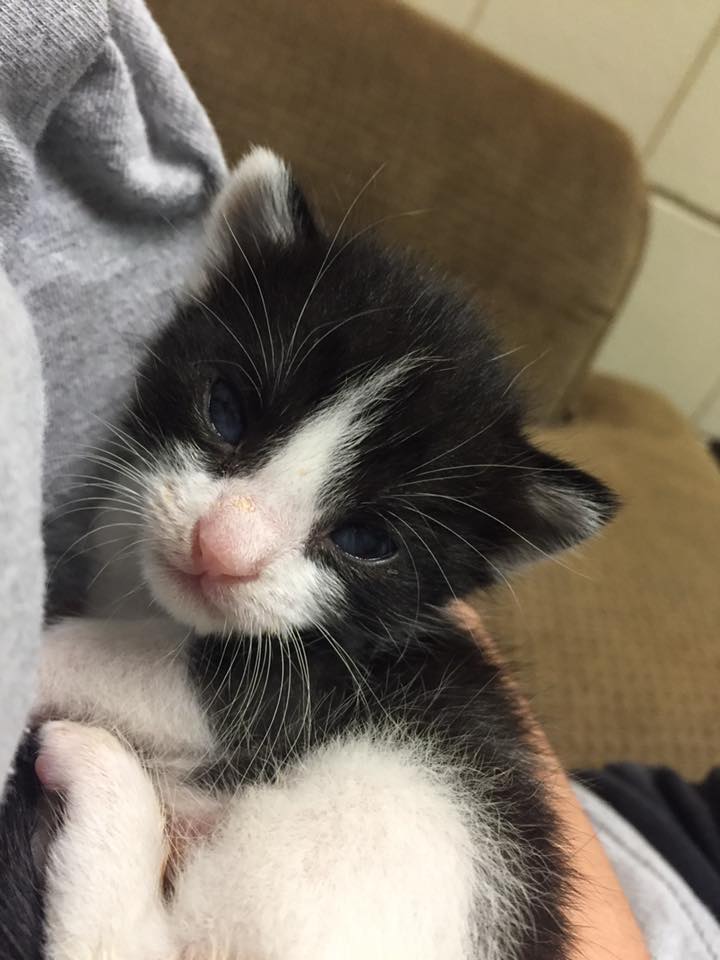
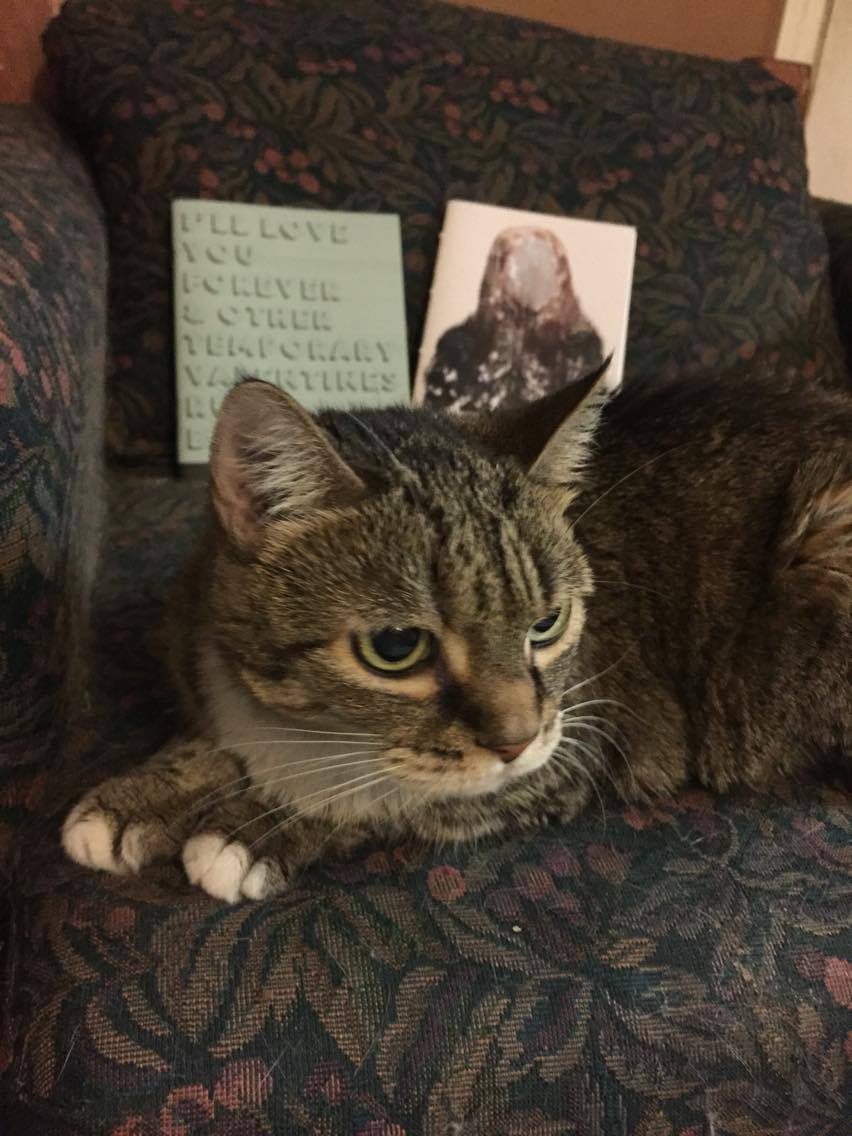
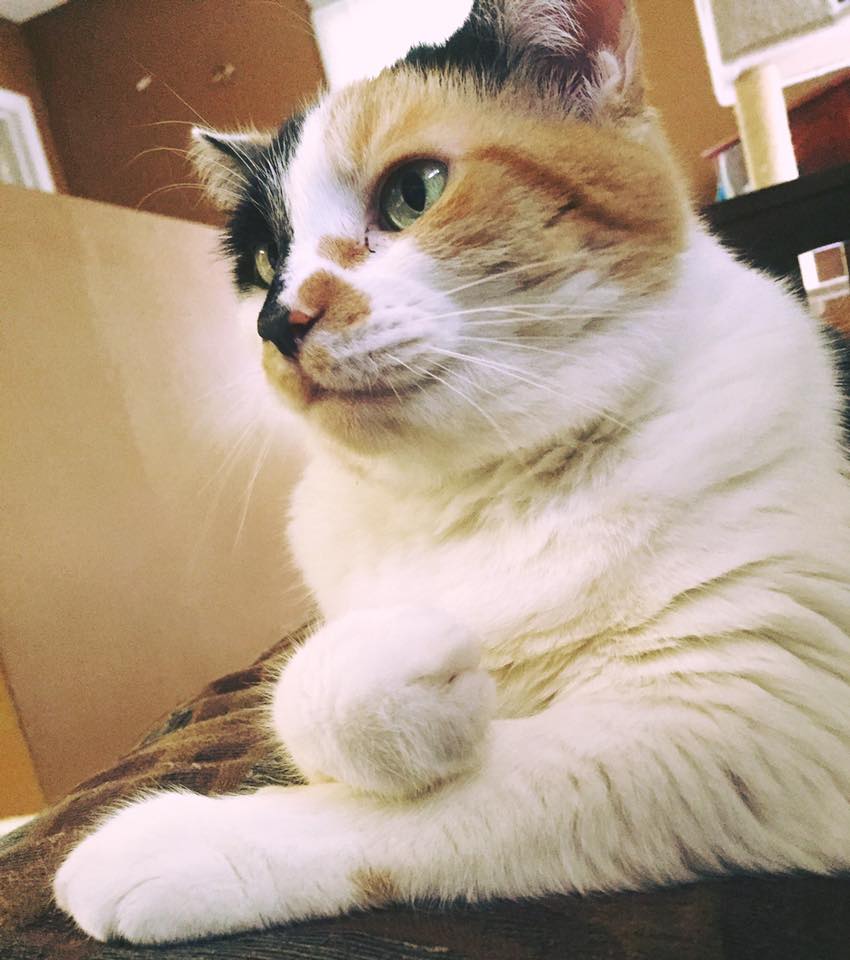
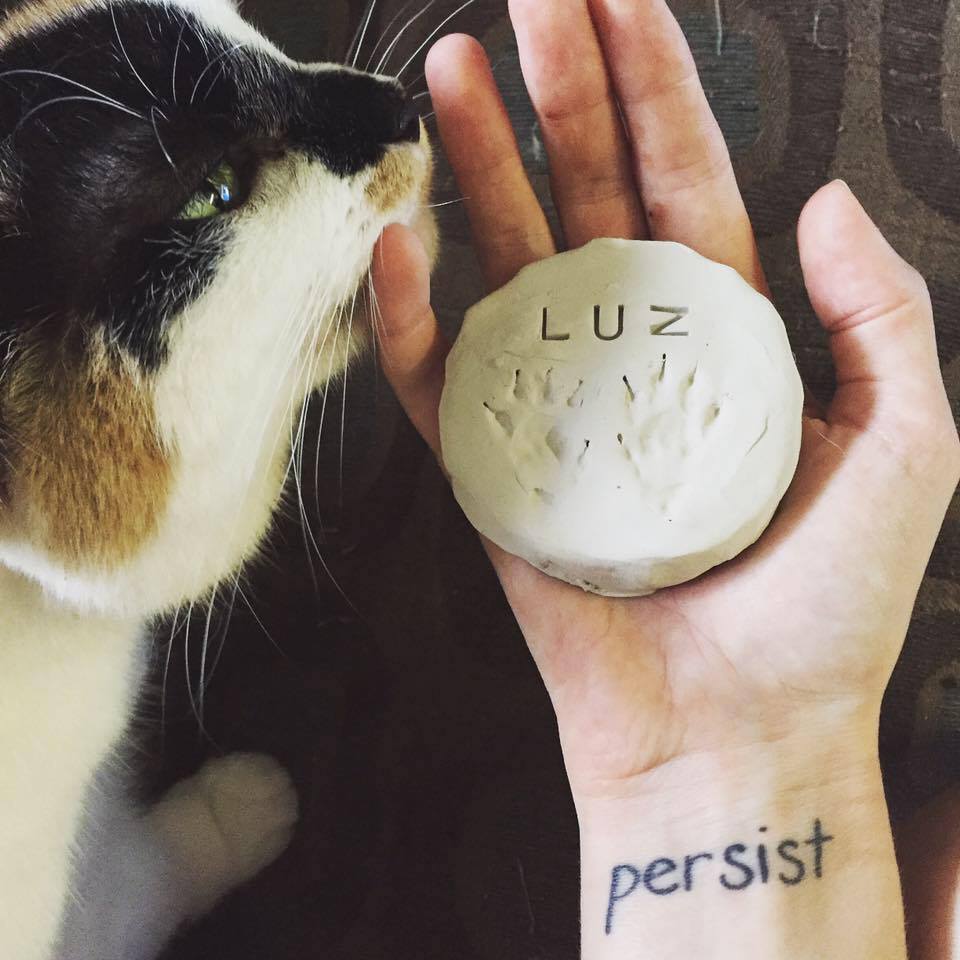
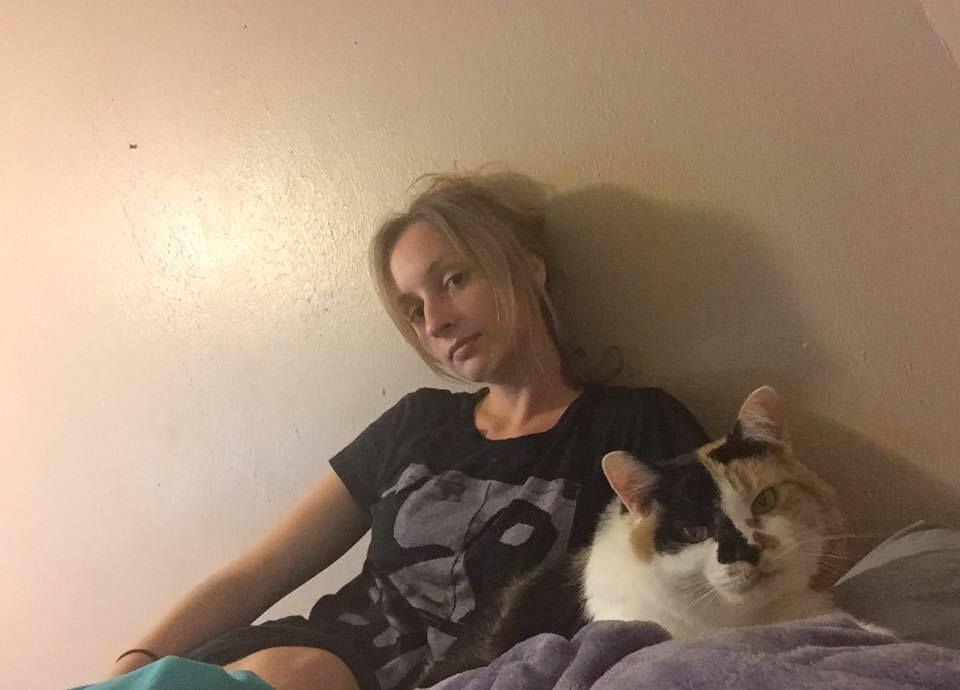
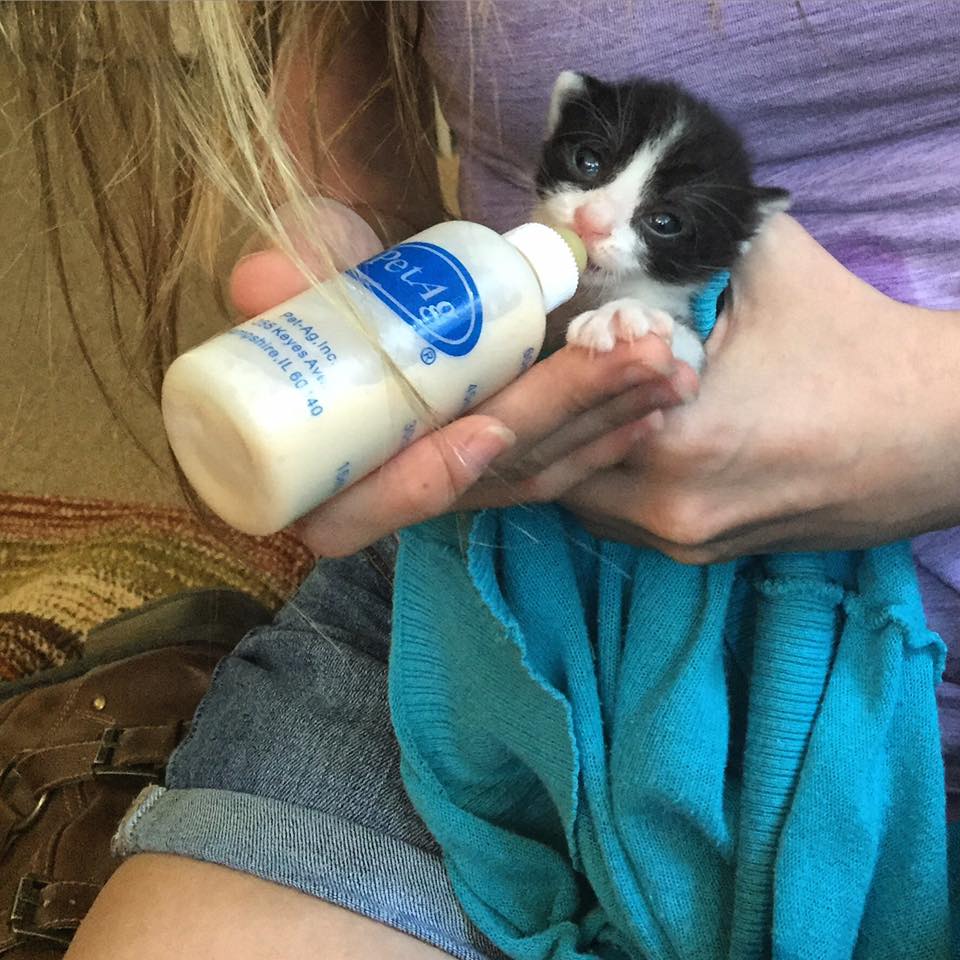
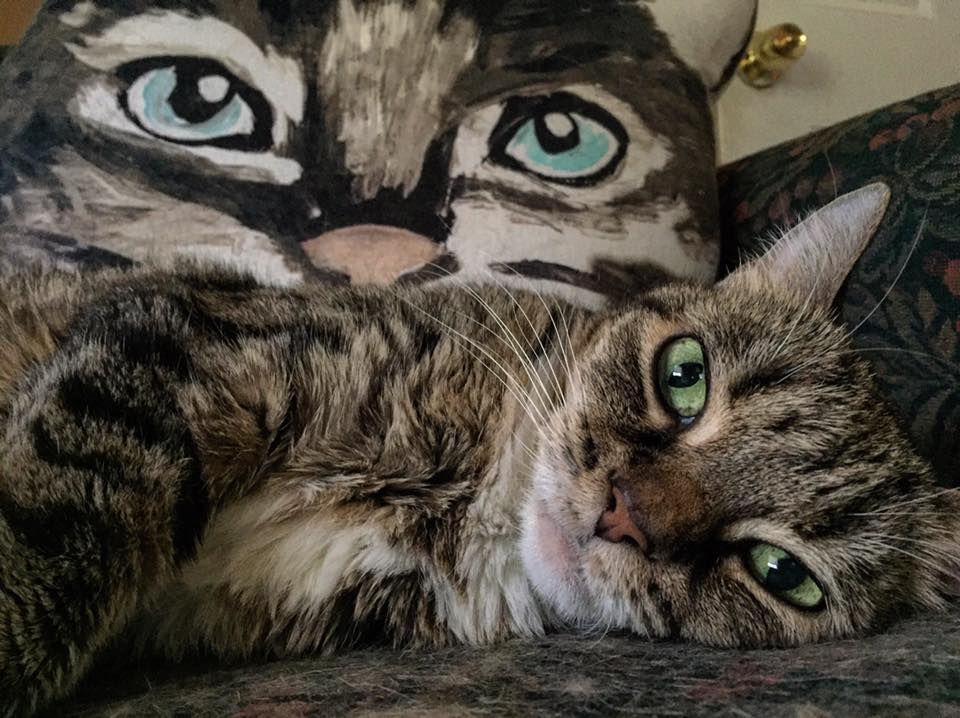
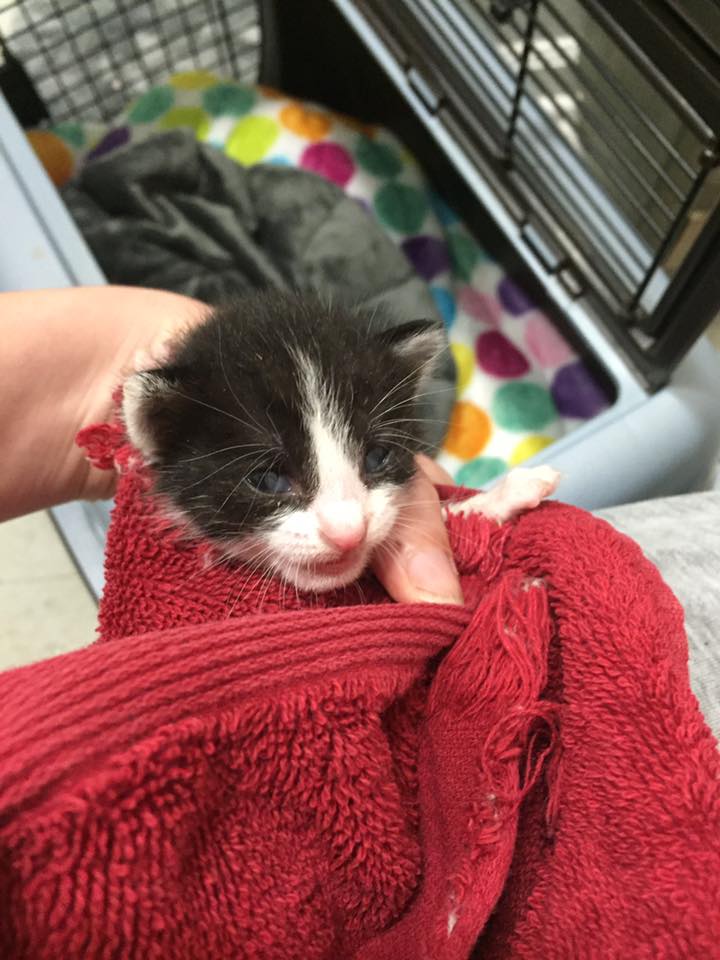
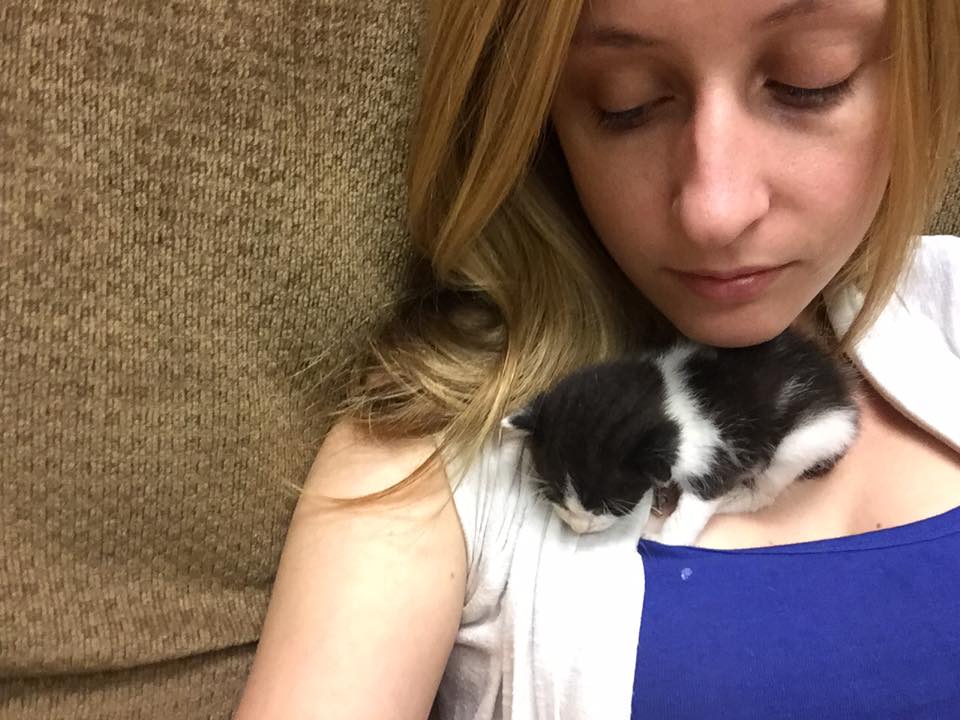
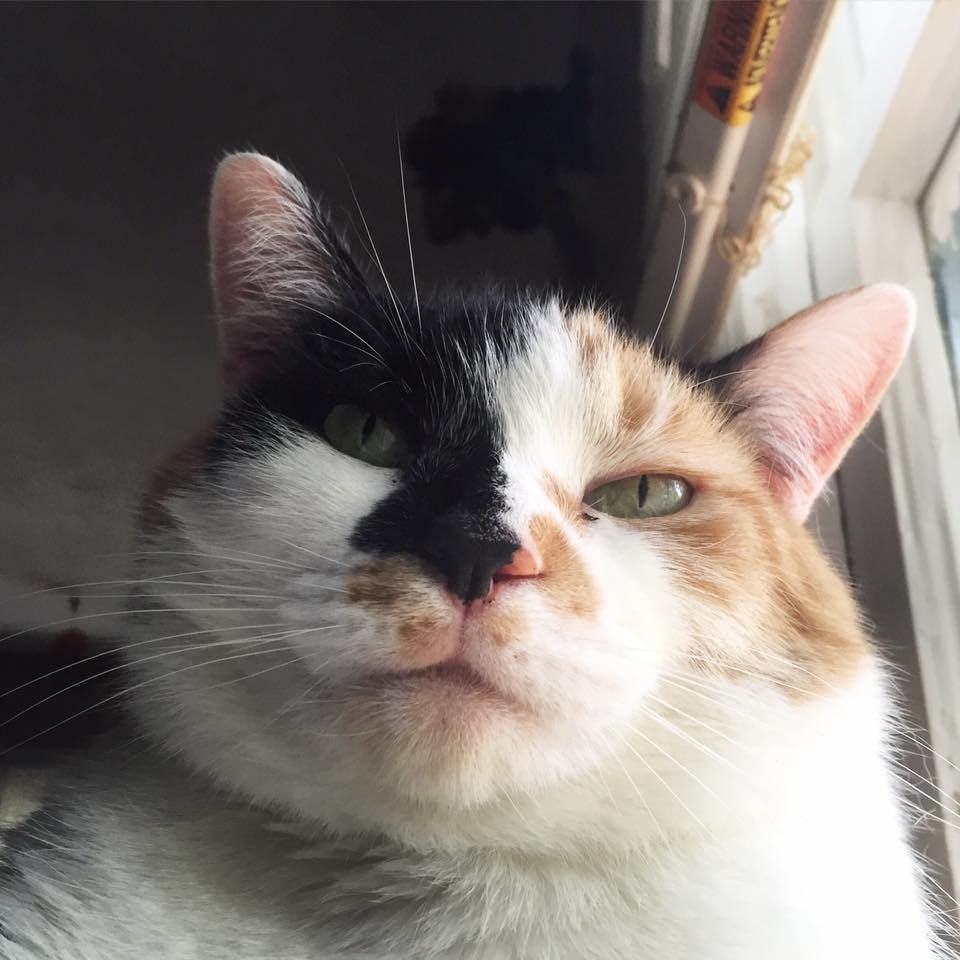
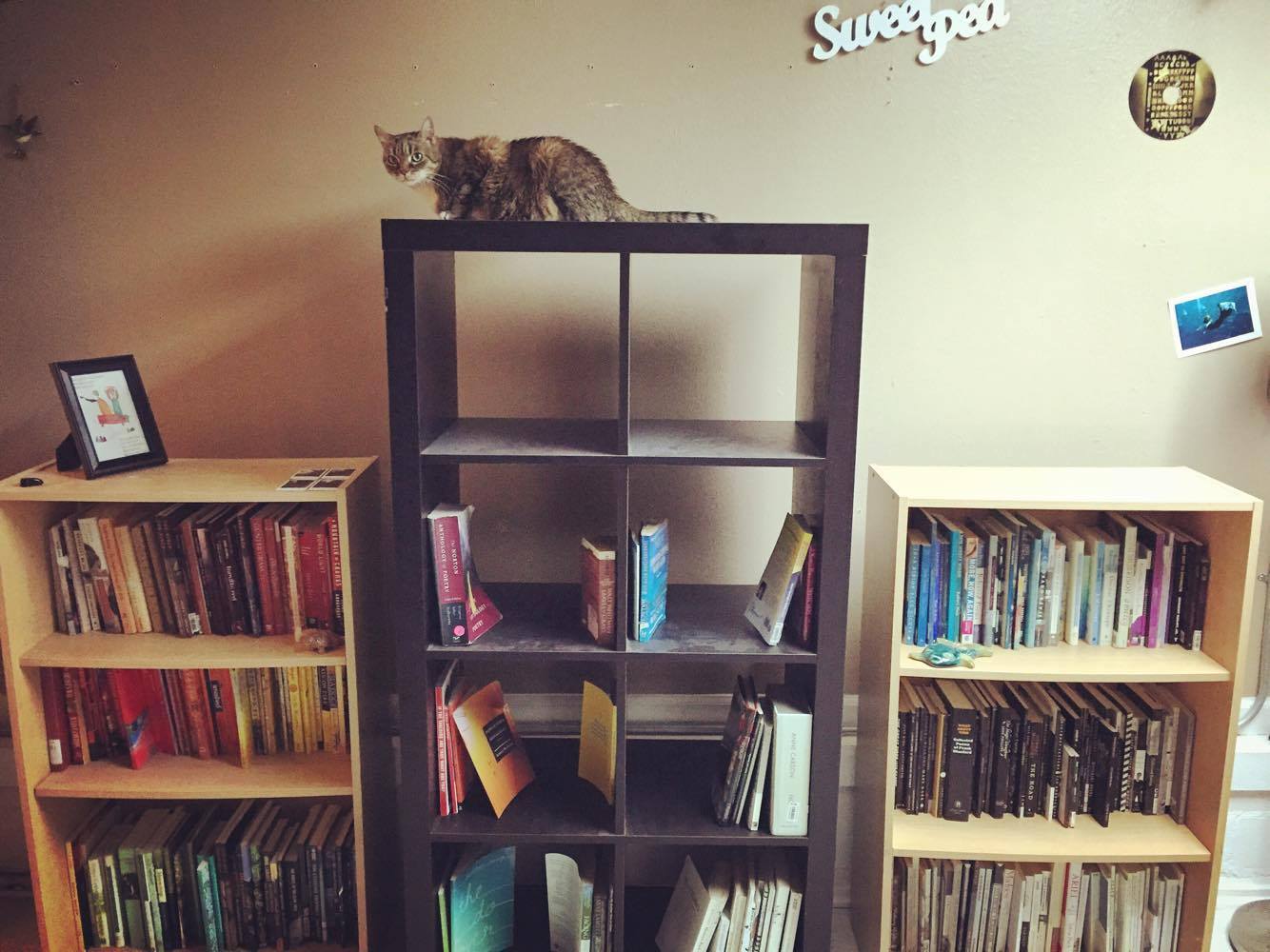
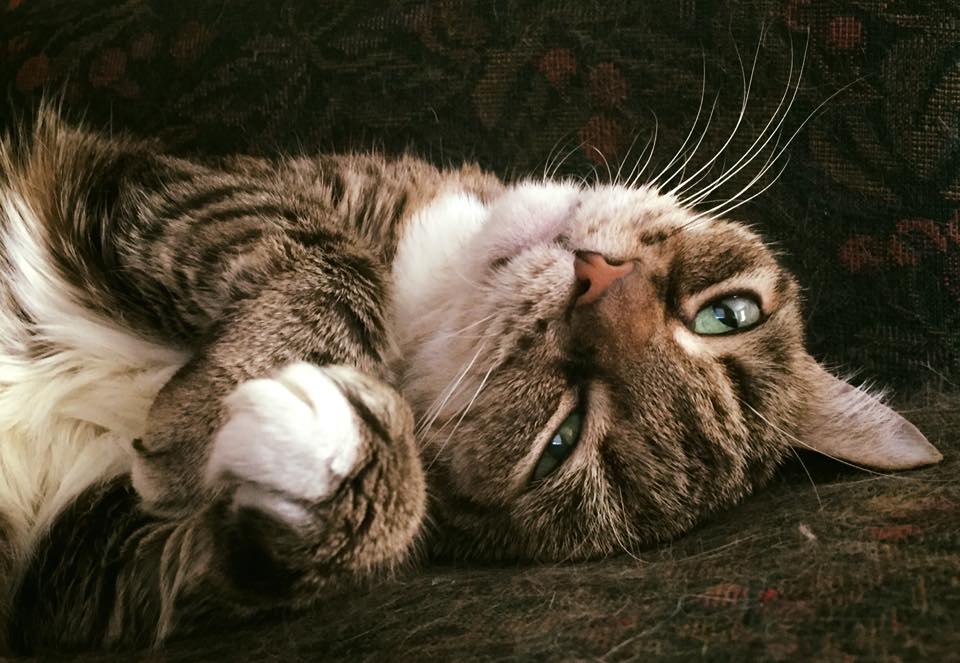
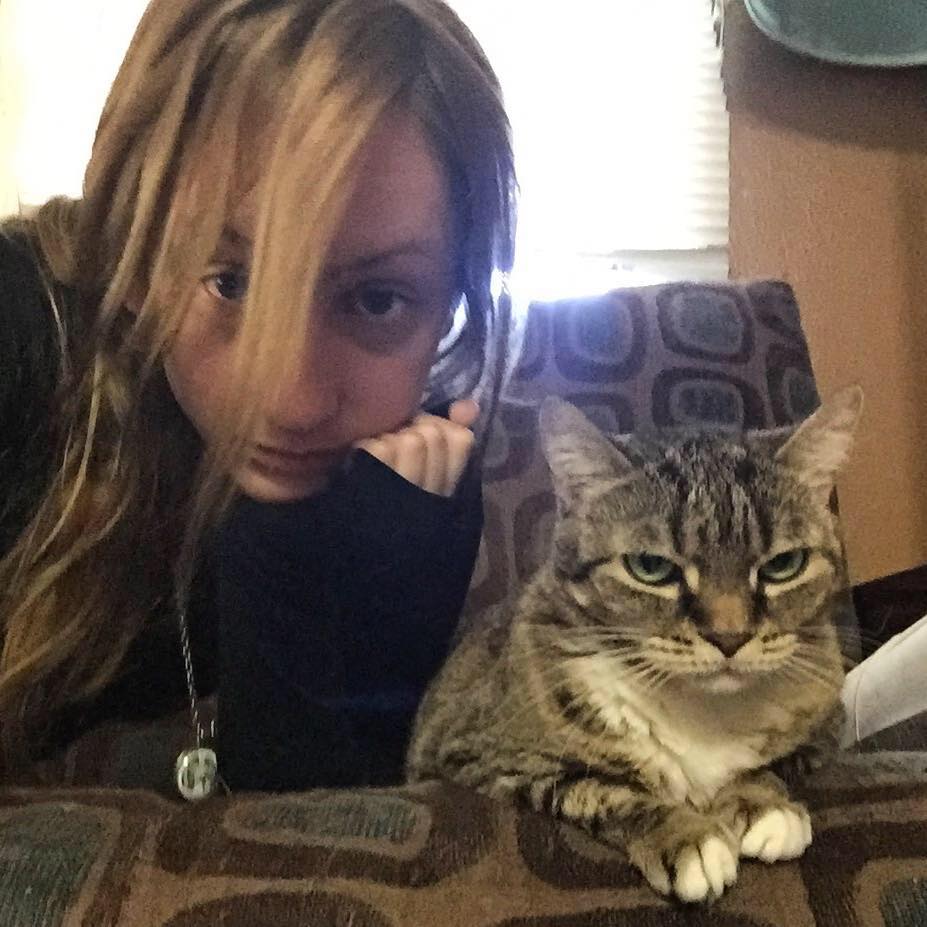
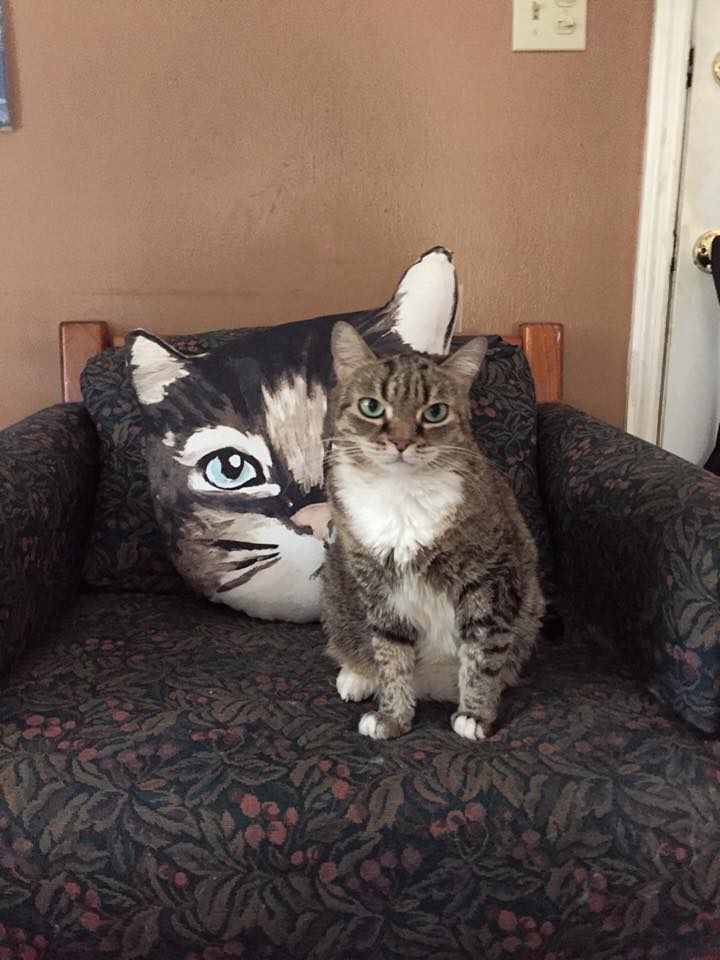
You mentioned that you adopted your cats Julia and Autumn from the Richmond SPCA when you were in a transitional period in your life. Was it the uncertainty of this time that made you seek out your cat companions?
I wonder about this—or, the bigger picture version: what draws me to animals, particularly cats? I’ve always loved animals, always gravitated towards that which watches, communicates differently, needs protection or translation. There’s something really comforting to me about the animal mind, about how wild & honest it is. I think it’s a sort of perpetual underdog empathy that comes from a billion sources & can be analyzed to death but never eradicated.
On a smaller scale: I was something of a delinquent youth (as I imagine many artists were), & I adopted the cats a little over 8 years ago, when I began to transition my life into stability. I think the turn into acceptance of a normal, non-chaotic life allowed me to open my heart back up, & to be able to care responsibly for animals. Anytime I’m not in fight-or-flight mode, I feel like the person I want to be, which is one that is useful & has a lot of love to give. The cats probably grounded me in this new life as much as I helped ground them in a home where they’d be loved (the little one, Julia, was an owner surrender multiple times before we fell in love, & I believe she’d been abused).
Also, I grew up with cats, & have consistently loved them—I’m the weirdo at the party who will go hang out in the corner with the resident cats rather than talk to y’all.
"There’s something really comforting to me about the animal mind, about how wild & honest it is."
Autumn
I love the biographical note left in Julia’s file when you first got her: “EVIL.” They didn’t even try to mince words, huh? Can you talk a little about how affirming the affection of a picky animal is? And what caring for animals teaches you about unconditional love?
Oh, so affirming! I’ve given it a lot of thought & Julia is pretty solidly my soulmate. (Or, one of—I guess we get a few.) Like I mentioned, I got them when I was in the process of shifting lifestyles, & any transition that requires letting down defenses & feeling what’s been numbed causes a lot of fragility. Fragility that’s been there all along, I believe, but has been masked. Julia in so many ways represents this me, the me that I still contain: she’s been endlessly loving to me from the first moment (she will sit by me sometimes & purr for hours on end, she is waiting at the front door whenever I come home—even if it’s just from a walk to the mailbox, etc.), but gets so instinctual sometimes. If someone pets her too soon, or if I pet her too much, or don’t pay attention to her body language, blood is shed (very literally). I had an ex she used to spit on—I’d never seen a cat spit before!
I believe that most creatures are like that, honestly: it’s just our hurts that block our unconditional love capacity. By whatever stroke of luck/fate, Julia recognized a kindred in me, & we bring out the best in each other. She’s mellowed a little bit over the years, too, believe it or not. (Autumn, too, is a fragile spirit—she was found on the streets at about a year old, & is incredibly skittish. Once she’s comfortable around you, she’s completely demanding of love & won’t stop purring & cuddling, but until then, she will—despite being a 17 pound calico—be impossible to find.)
I think unconditional love is easily taught by animals. I think perhaps more correctly, unconditional love is already inherent but animals remind us of it. There’s no fear of the hurt or trickery that can come from human relationships, really—a kitten won’t have control issues or manipulate you or drink too much or fall in love with a different person, etc. (I hope.) Taking care of animals also grants me a specific purpose in the relationship—especially in the case of the baby kitten I fostered recently & had to bottle-feed every few hours—which I think is a lot of what we want as humans, to feel love (not just towards us, but to feel love outwards) & to feel useful. I’ve heard a lot over the years about love being not a feeling but an action, & taking care of animals is a great way for me to practice this.
"Unconditional love is already inherent but animals remind us of it."
Ruth and Julia
To thread the needle of the last question, let’s talk about your poetry through the lens of unconditional love. Does it play a role in your work or how you engage with your subject matter?
That’s an interesting question. I wish I could say yes, but so many of my poems have come from my wounded places, from my difficulties with trauma & human relationships & reconciliation with my past that I’m not sure they deal in unconditional love as much. They try to. They try to wade through the conditions they were taught, & they try to learn to love themselves & others as best they can. I guess my poems are as fallible as their writer. While there are moments of light in the poems, they’re often more concerned with seeking & broadcasting the truth than a particular kindness or love.
Poetry is often a safe space for me, as all written language is, to work out the pains that can’t be expressed healthily or comprehended in a particular relationship (often the relationship between self & universe). Maybe I can reframe this as unconditional love for self being an unspoken tenet of writing at all—that there’s some hope, some flicker of survival that wants to be love underneath every attempt at communication, growth. Otherwise, why bother?
Even in your poems, the speaker can’t stop thinking about the wellbeing of the animals that populate the lines. Examples: in “Loving You Terrifies Me,” you write: “Your fear is waking up with a raccoon in your face. My fear is / the poor animal will realize there’s another side” and in “In Media Res,” you write: “Scientists are killing one species of owl to allow another to survive. / I’ve forgotten to read the news for a decade. Promise love isn’t a series of / selfish confessions? Did anybody ask the owls?” Would you say that’s a confessional impulse at work?
Oh, of course! Probably all writing (& all actions) are confessional, really. Also, I literally was dating someone once that had a wild animal in his attic. Every night we’d go to bed this one winter & hear scratching above our heads. This was years before I fell in love with raccoons, of course, so I didn’t befriend him/her. That anecdote isn’t really that useful, but it’s confessional, too.
I don’t know anything beyond my own experience, I think. I mean: I can understand many other things, I am guilty of having way too many opinions sometimes, I can sympathize & empathize with others, etc.—but all that I can truly speak to is that which I have been through. I try to be mindful of never speaking for that which I’m not qualified, & I’m sure this reflects in my poems.
"I identify with the sense of watchfulness, the wariness of animals."
Ruth bottle-feeding Luz
I was so heartbroken to hear your little foster kitten Luz didn’t survive, but I’m moved by how deeply you cared for her in your short time together. Can we expect to see a poem about Luz in the future?
Yes. I’ve already written her into some. I also dedicated my full-length manuscript to her. Luz meant a lot to me because she was ridiculously perfect, & I’ve never been in that much of a mothering position before: it’s impossible (at least for someone like me) to not attach deeply to an animal you wrap up in a washcloth & bottle feed & tuck in with a heated blanket every few hours. (I mean—did you see the pictures?) I also was going through a period of some loss in my personal relationships, & having an animal to love deeply & claim as family was really crucial to my healing at the time, to my remembering & walking back into the depths of my capacity to love.
Animals show up quite a bit in your work, especially when you write about love and heartbreak. How are these ideas linked for you?
We are animals! I think humans forget that far too often. We are animals, pack animals at that. As much as it may seem that our consciousness separates us, & our laws & rules & ideologies do, I don’t think we’re that far off from the other species. We are just one animal on the planet, & it gives me peace to remember this. Also, as a writer, as a Pisces, as an introvert, etc., I identify with the sense of watchfulness, the wariness of animals.
In terms of love & heartbreak, I believe these are some of the most deep, visceral emotions we can experience, & I’ve often felt intensity that seems wild. If you’re a poet & you don’t claim you’ve felt feral before, I’m not sure I believe you.
"If you’re a poet & you don’t claim you’ve felt feral before, I’m not sure I believe you."
Autumn
You’re the author of three chapbooks: I’ll Love You Forever & Other Temporary Valentines, wildcold, and Retribution Binary. What about the shorter form of the chapbook appeals to you? And your best tip for putting together a chapbook?
I think maybe my attention span? It’s easier for me to write a cohesive body of work when it’s shorter. I’ve actually written some longer manuscripts, but they usually eventually end up feeling too disparate—it’s really difficult to pull together a full-length book’s worth of poetry that connects from the first to last page.
The best tip I have for putting together a chapbook is to print out everything you’ve written lately (lately being a relative term) & spread it across your floor. Then I pile together the poems that make sense with each other, the poems that speak to each other, & see if the pile(s) are big enough to attempt a larger endeavor like a chapbook or book. Usually, poets have obsessions or work through something for long enough that there’s a thread through a season’s worth of work, I think.
Fill in the blank: when you’re reading through piles of slush, the work that most catches your attention…
Has a moment of truth. Has a break into clarity. Says beautiful things that have meaning, gives as much credence to the message as to the delivery. Reminds me of an old self or a new way to look at my current self or a self I want to be.
"My cats are like an affirmation from the universe."
Meta Julia
If cats were a poetic form (e.g., sestina, sonnet, ode), they’d be…?
Free verse! Would you try to contain them?!
A simile for your cats?
This stumps me. I want them to be metaphors. My cats are like an affirmation from the universe.







